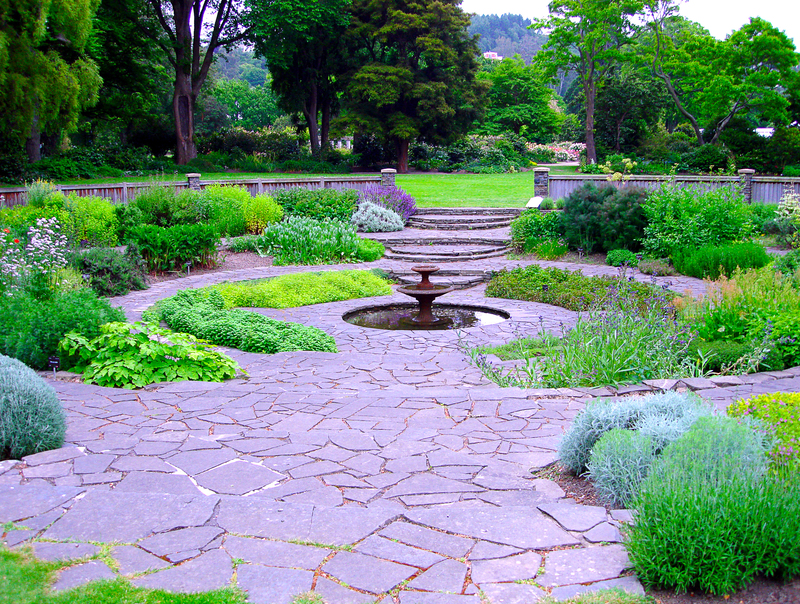Conquer Your Garden: 3 Essential Weed Control Tips
Posted on 25/06/2025
Conquer Your Garden: 3 Essential Weed Control Tips
Every gardener dreams of a vibrant, thriving garden untouched by pesky weeds. Yet, the reality is that weeds are often an inevitable challenge. They compete for water, nutrients, and sunlight, making it harder for your plants to reach their full potential. If you want to truly conquer your garden and keep it flourishing, mastering the art of weed control is essential. In this comprehensive guide, you'll discover three proven, essential weed control tips that will help transform your garden into a weed-free haven.
Why Weed Control Matters in Your Garden
Weeds are more than just an eyesore. They:
- Compete with your desired plants for resources
- Harbor pests and diseases that can threaten your garden
- Reduce crop yields and flowering in edible and ornamental gardens
- Damage the aesthetic and hard-earned beauty of your outdoor oasis
Proactive weed management not only boosts your garden's health but also reduces the labor required in the long run. Let's explore how you can achieve effective weed control and maintain a lush, productive space all year round.

Tip #1: Embrace Mulching for Natural Weed Suppression
What Is Mulching and Why Does It Work?
Mulching involves covering the soil's surface with a protective layer of organic or inorganic material. This powerful gardening practice acts as a natural weed barrier and offers multiple benefits:
- Blocks sunlight, minimizing weed seed germination
- Retains soil moisture and regulates temperature
- Enhances soil structure and fertility as some mulches decompose
- Improves garden appearance by providing a neat, uniform look
Choosing the Right Mulch for Weed Control
When planning your garden weed management strategy, selecting the right mulch is crucial. Here's a breakdown of popular options:
- Organic Mulches: Straw, bark chips, shredded leaves, compost, and grass clippings. These mulches feed the soil as they decompose and offer long-term benefits.
- Inorganic Mulches: Landscape fabric, black plastic, gravel, or stones. Although they don't improve soil fertility, they offer lasting weed suppression and are especially useful for pathways or perennial beds.
How to Apply Mulch for Maximum Effectiveness
- Prepare the Soil: Remove existing weeds and loosen the soil before applying mulch.
- Layer Generously: Apply a 2-4 inch (5-10 cm) thick layer around your plants. Avoid piling mulch directly against stems to prevent rot.
- Replenish Annually: Organic mulches break down over time, so expect to add fresh mulch once per season for year-round weed control.
Mulching is among the easiest and most effective weed prevention techniques. Make it a routine part of your garden care to choke out invasive weeds naturally.
Tip #2: Master Smart Hand Weeding Techniques
Even with the best barriers, some weeds will inevitably appear. Hand weeding is an age-old practice that remains one of the most reliable weed control tips. By refining your weeding strategy, you can keep your garden remarkably weed-free without resorting to harsh chemicals.
When and How to Hand Weed for Best Results
Timing and technique matter!
- Weed Regularly: Make weeding a weekly habit, especially in early spring when weeds are small and vulnerable.
- Weed After Rain: Pulling weeds is easier when the soil is moist and roots are loosened.
- Remove Weeds Completely: Grasp at the base and pull gently, ensuring the entire root system comes out. Leaving roots can result in rapid regrowth.
- Use the Right Tools: Equip yourself with a hand fork, hoe, or a specialized weeding tool to tackle tough or deep-rooted species efficiently.
Preventing Future Weed Growth
Early intervention is key to successful weed management. The sooner you spot and remove weeds, the less likely they'll have time to flower and set seed, which can populate your garden with weed seedlings in seasons to come.
Top Tips for Efficient Hand Weeding:
- Tackle weeds while they're young and easier to eradicate
- Inspect your garden frequently, especially after watering or rain
- Dispose of weeds in the trash, not the compost if they've gone to seed, to avoid spreading them
Persistent diligence pays off: Routine, mindful weeding is an essential part of effective weed control for any gardener, amateur or experienced.
Tip #3: Use Preventive Planting and Ground Covers
Prevention is better than cure, and this holds true when it comes to controlling weeds. Dense planting and living ground covers help reduce weed problems by crowding out competitors and covering exposed soil where weed seeds could sprout.
Choosing Plants and Ground Covers for Weed Suppression
- Cover Crops: Particularly valuable for vegetable gardens or off-season plots. Rye, clover, and vetch are excellent choices. They outcompete weeds and add nutrients back into the soil when tilled under.
- Low-growing Perennials: Plants like creeping thyme, vinca minor, and ajuga form thick mats that inhibit weeds, making them perfect for borders and ground cover beds.
- Interplanting: Mix fast-growing, spreading plants between slower growers or in bare spots to minimize open soil and block weed establishment.
Designing Plant Spacing to Ward Off Weeds
Strategically close spacing can dramatically reduce the space available for weeds to grow. Follow these strategies:
- Fill Gaps Efficiently: Avoid large, bare patches when planting annuals, vegetables, or perennials.
- Layer Heights: Use taller plants to shade lower ones, both acting as a living weed barrier.
- Select vigorous ground covers for persistent weed-prone areas instead of constantly re-mulching or hand weeding alone.
By thoughtfully utilizing ground covers and smart plant spacing, you create a highly effective, low-maintenance weed defense system that benefits both ornamental and edible gardens.
Additional Weed Control Strategies for Garden Success
While the three main tips discussed above form the backbone of successful weed management, consider the following strategies to reinforce your defense against invasive plants:
- Solarization: In hot climates, cover weed-prone soil with clear plastic for several weeks in summer to "cook" weed seeds through intense solar heat.
- Boiling Water & Natural Weed Killers: For smaller, paved areas or cracks, carefully pour boiling water or vinegar on weeds to kill them organically.
- Minimal Soil Disturbance: Only dig or till soil when absolutely necessary--disturbing soil can bring buried weed seeds to the surface, prompting new growth.
The Role of Healthy Soil in Weed Prevention
Weeds often target poor, depleted soils. By maintaining soil health, you promote robust, vigorous plants that naturally outcompete weeds. Here are some soil care tips for long-term weed suppression:
- Regularly amend your soil with compost and organic matter
- Maintain proper pH and balance nutrients with soil testing
- Avoid overwatering: Dry soil surfaces discourage many weed species from germinating
Integrated Weed Management: Combining Methods for Lasting Results
The most effective way to conquer your garden with superior weed control is to combine prevention, physical removal, and strategic planting. Here's how to integrate these approaches:
- Begin with a thorough weed removal session
- Apply a thick layer of mulch tailored to your garden's needs
- Fill bare spots with cover crops or resilient perennials
- Maintain vigilance with regular hand weeding
- Seasonally refresh mulch and adjust plant spacing as needed
This holistic, environmentally-friendly approach delivers a vibrant, productive, and virtually weed-free garden season after season.
Common Garden Weeds: Know Your Enemy
Identifying the most common weed types in your region can help you design your weed control plan. Here are several prolific offenders gardeners encounter:
- Dandelion: Deep taproot makes them hard to remove; best extracted with a tool after rain
- Crabgrass: Invasive grass; controlled best by preventing seed establishment through mulching and ground cover
- Bindweed: Twining, vining weed; requires persistent removal of roots and shoots
- Chickweed: Cool-season annual; flourishes in moist, fertile soil
- Purslane: Spreads rapidly, reproduces by seed and stem fragments
Spotting these early and acting quickly will save countless hours of labor later in the season.
Eco-Friendly Weed Control: Reducing Chemical Use
Many gardeners seek to keep their green spaces safe for families, pets, pollinators, and the environment. That's why these natural weed control tips stand out: they don't rely on herbicides or toxic chemicals, yet can be just as effective with consistent effort.

Frequently Asked Questions: Garden Weed Control
1. How often should I mulch my garden for weed suppression?
At least once per growing season. Organic mulches break down gradually, so topping them up once a year (ideally in spring) is recommended.
2. Can I compost weeds pulled from my garden?
Only compost weeds that haven't gone to seed. Compost piles may not reach temperatures high enough to destroy seeds, leading to re-infestation when using the compost.
3. Is there a best time of day to weed my garden?
The morning, when the soil is still moist, offers the easiest weed-pulling experience and minimizes stress on your garden's desirable plants.
Conclusion: Take Charge and Enjoy a Weed-Free Garden
Weeds don't have to steal the show in your backyard. By embracing mulching, prioritizing hand-weeding, and making smart use of ground covers and plant spacing, you can seize control and enjoy a healthy, productive garden year-round. Remember, the best weed control tips are those you apply consistently and adapt to your unique landscape.
Transform your gardening routine with these easy, eco-friendly, and effective strategies for weed management. Your plants--and your peace of mind--will thank you. Ready to conquer your garden? Start today, and let your flowers and vegetables take center stage, weed-free and thriving!
```Latest Posts
Vertical Gardening: A Fresh Perspective on Urban Greenery
Gardening Prowess and Pets: Tips for a Plant and Pup Paradise
Explore Vital Gardening Tools for Nature Lovers

